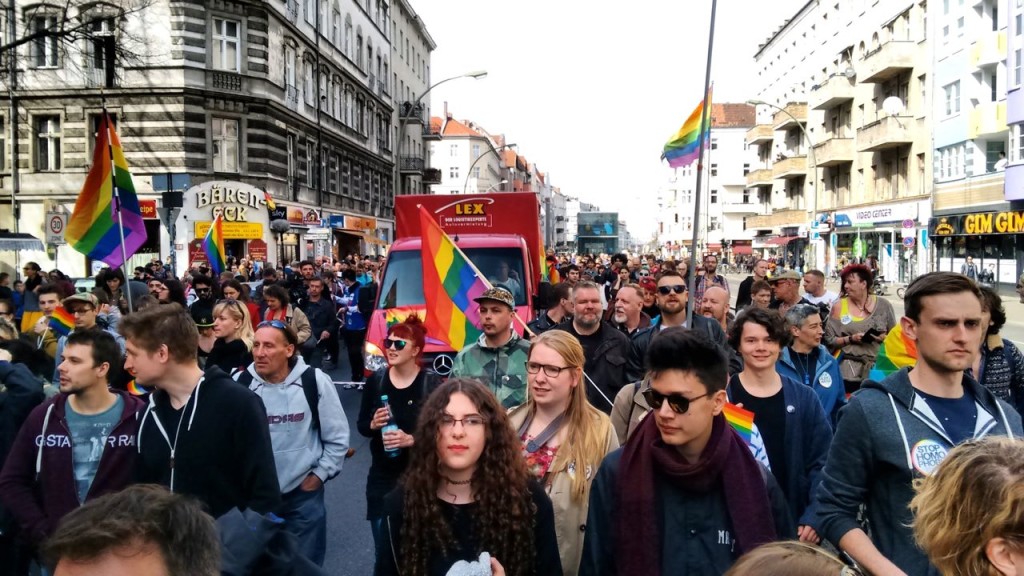Germany’s Embarrassing Civil Partnership Law
Germany’s antiquated, Version 1,0, civil partnership law for same-sex couples desperately needs an upgrade.
In June, the US Supreme Court will rule on whether same-sex marriages should be extended to all 50 States. A traditionally Catholic country, Ireland, overwhelmingly supported a popular constitutional referendum on gay marriage on 22 May 2015. And on 22 June, a law in Mexico will come into effect legalising gay marriage throughout the country. All this within a month. Internationally, in Western societies, it seems to be gay marriage’s moment.
In Germany, however, the partnership law of 2001, seen as an achievement at the time, now looks increasingly antiquated and embarrassing. The original law, many said, tied one to all the obligations of marriage and none of the rights, such as inheritance or tax benefits. It was revised, but a civil partnership continues to be discriminatory. There are 150 different provisions in 54 laws that make the difference, and these include (as Stern reported after the Irish result): gay couples cannot jointly adopt a child, partnership is not constitutionally protected and its rights can be revoked by legislation, and many pension schemes do not recognise partnerships. Finally, it is fundamentally unequal because it is not called a “marriage”.
Part of the sluggishness in Berlin at least is the lack of attachment to the word “marriage” among the progressive set. Isn’t marriage a stifling convention, after all? Is it not unsurprising that, in more conservative, often Catholic, societies, the word “marriage” has meant more? Then again, even if one opposes marriage, is it not an affront to equality if it is not open to all?
For the religious interests of the Christian Democrat party “marriage” means a great deal. The ruling party is in furious discussion now, and over the summer, over proposed changes to the law, with, yesterday, the CDU general secretary in Saxony, Michael Kretschmer, questioning the very relevance of the discussion, when gay people already have access to partnerships, which he says are “largely the same as marriage”. He dismissed the idea of gay adoption outright and appealed to protecting the “essentials of our society”, with rhetoric that sounds like it comes from another century if you are used to level of discussion on marriage in, say, Canada.
Germany’s cultural representation, abroad, the Goethe Institute, promotes civil society, including gay rights, in “developing”countries. But increasingly it does not have the moral authority to do so, especially when countries like South Africa, Mexico or other Catholic countries in Latin America have superior legislation to Germany’s. Germany does not suffer from the indignity of being the only country in Western Europe without any recognition of same sex partnerships––that one goes to Italy––but it is no longer in league of its neighbours. The time is over when the “North” has a monopoly on gay rights. Increasingly, we have to decide which countries more broadly can compare to their counterparts. Almost every large Western European country makes the grade (France, Spain the UK, perhaps soon the USA federally…), but Germany decidedly does not. You’d do better in Uruguay.
At the bar last night, I met two Irish bears, who talked about the popular referendum on marriage in their country. “We were thinking”, said one, sipping his beer in Roses, “What happens if we lose? Will we have to move, or just keep on fighting? But then it happened, and you notice––it’s very strange––suddenly in the streets of Dublin you see so many same-sex couples holding hands, because they know that the majority around them don’t give a damn. And here we are in Berlin, the ‘most tolerant city in the world’, and you can’t even get married!”
I will be interested to see whether next weekend’s Christopher Street Day (Gay Pride) in Berlin will be less of a party and more of a political statement. There are also a series of important exhibition openings concerning gay rights and “homosexualities” this week, at the Schwules Museum and the German Historical Museum. The Needle will follow up with a second article.
Berlin was the capital of the very beginnings of the global gay liberation movement in the late 19th century. It remains to be seen whether it can deliver on that promise in the early 21st, with an upgrade of its laws to Version 2.0.

